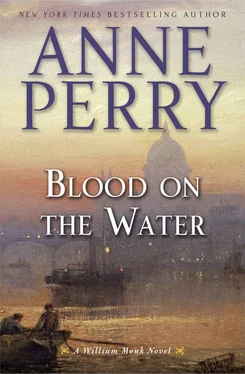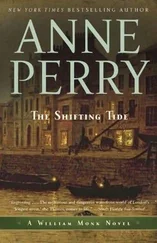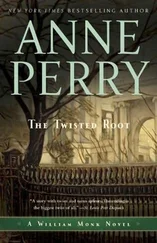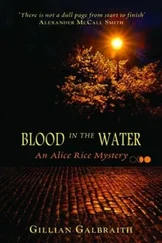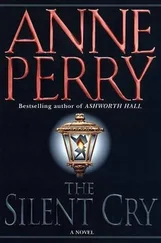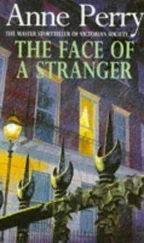Anne Perry - Blood on the Water
Здесь есть возможность читать онлайн «Anne Perry - Blood on the Water» весь текст электронной книги совершенно бесплатно (целиком полную версию без сокращений). В некоторых случаях можно слушать аудио, скачать через торрент в формате fb2 и присутствует краткое содержание. Год выпуска: 2014, ISBN: 2014, Издательство: Random House Publishing Group, Жанр: Исторический детектив, на английском языке. Описание произведения, (предисловие) а так же отзывы посетителей доступны на портале библиотеки ЛибКат.
- Название:Blood on the Water
- Автор:
- Издательство:Random House Publishing Group
- Жанр:
- Год:2014
- ISBN:978-0-345-54844-3
- Рейтинг книги:3 / 5. Голосов: 1
-
Избранное:Добавить в избранное
- Отзывы:
-
Ваша оценка:
- 60
- 1
- 2
- 3
- 4
- 5
Blood on the Water: краткое содержание, описание и аннотация
Предлагаем к чтению аннотацию, описание, краткое содержание или предисловие (зависит от того, что написал сам автор книги «Blood on the Water»). Если вы не нашли необходимую информацию о книге — напишите в комментариях, мы постараемся отыскать её.
Blood on the Water — читать онлайн бесплатно полную книгу (весь текст) целиком
Ниже представлен текст книги, разбитый по страницам. Система сохранения места последней прочитанной страницы, позволяет с удобством читать онлайн бесплатно книгу «Blood on the Water», без необходимости каждый раз заново искать на чём Вы остановились. Поставьте закладку, и сможете в любой момент перейти на страницу, на которой закончили чтение.
Интервал:
Закладка:
Rathbone had stayed to be of whatever assistance he could. He felt foolish, perhaps intrusive, but he could not leave Beata alone to watch over what might very well be York’s last journey from his own home to a place where he could be cared for, and perhaps from which he might never emerge.
Dr. Melrose could offer no prognosis. He was at a loss, and he had more dignity than to lie about it. Beata seemed to be grateful for that. At her insistence, he also looked at the angry red weal on Rathbone’s shoulder and across his cheek. He glanced at the cane still lying on the floor but he did not ask Rathbone what had occurred. Perhaps York had lost his temper before and Melrose already knew it.
Rathbone was cold at the thought of what Beata might have endured, and forced the imaginings from his mind-not for his own sake, but for hers. If York had indeed struck her, she should be able to believe that Rathbone had no idea.
There was nothing to say beyond the formal words that filled the awkward silence. He had met her eyes once, and knew that she understood at least something of his feelings.
She answered with a tiny smile. It was not yet time for anything else.
It was after midnight when he left. He wished he could do something to help, but was certain that there was nothing yet, except to be discreet. He would speak to no one, not even Monk or Hester, about the blow York had struck him, or the convulsion of rage he had seen. But he could not remove from York’s memory, and also Beata’s, the knowledge of York’s misconduct in the trial of Beshara. That was an abuse of the law, even if they attributed it to York’s ill-health, and it must be faced.
Accordingly he was at Brancaster’s chambers before Brancaster was there himself, and was waiting for him as he arrived. The morning was warm with the still, faintly dusty tiredness of late summer, when the air longs for the cleanness of autumn, the edge of frost, crisp leaves underfoot and the sharp tang of woodsmoke on the wind. The gardens would be bright again with the purple of Michaelmas daisies and the gold of late-blooming chrysanthemums.
Brancaster looked at Rathbone’s face, started to speak, then sensed the gravity in him and waited.
Rathbone followed him inside and set his case of documents down on the floor. “We have sufficient for a reversal, I believe,” he said very quietly. “If we cannot be sure of a conviction then we may have to use it. If we lose, Sabri cannot be charged again.”
An expression of relief crossed Brancaster’s face, and yet none of the tension slipped away from the body. His shoulders were still tight as if he could hardly draw a full breath, and his eyes did not leave Rathbone’s face.
“York will fight hard,” he said grimly.
“He won’t fight at all,” Rathbone answered, and the words sounded odd to his own ears. “He has had a seizure and I’m not sure he will recover. Certainly he will not be in a position to defend himself.” Briefly he gave Brancaster the details of the errors he had found in the rulings. He gave only the facts, as if he were presenting a case to a jury. He said nothing of mercy, professional honor, the reputation of justice or the law. He trusted that Brancaster would know it all without the necessity of words. No discipline under the law could equal in darkness, confusion, and disgrace what York’s own raging mind had done to him already.
For several seconds Brancaster said nothing. His face reflected many emotions. Then anger and pity gave way to a kind of desperation.
“Even if we overturn the verdict against Beshara, we still have to prove Sabri guilty,” he pointed out. “How can I give the jury any confidence that we have the faintest idea what we are doing?” He clenched his fist as if he wished to strike at something, but there was nothing deserving of his anger, nothing to direct it against, so he was left standing there helplessly. “Why?” he demanded, suddenly.
“Why what? Why York?” Rathbone asked.
“Why any of them?” Brancaster replied, his voice rasping. “Why was Camborne so diligent in prosecuting a case he must have known was flawed? He’s a damn good lawyer. He can’t have missed the holes in it, even if Juniver did.” His eyes searched Rathbone’s, as if he should have the answer.
Rathbone had heard from Hester how passionate Camborne had been. At the time he had considered that the horror of the case fueled a natural outrage. Now he wondered, reading York’s decisions and how harsh they had been against Juniver, if there had been more to it than that. Was it possible Camborne had also had some personal interest in it, a gain or a loss?
“And why is Pryor so dedicated to preserving the first verdict?” he said to Brancaster. “What stake has he in it? It’s gone far beyond trying to defend the reputation of the law. Is he trying to gain higher office? To be a judge? He loves the battle too much merely to preside, for all its apparent power.”
“Apparent?” Brancaster asked wryly.
Rathbone shrugged, yielding the point. “Then what?”
Brancaster let out his breath slowly. “Hatred.”
Rathbone was startled and then seized with a coldness inside.
“Of whom?”
“Of you,” Brancaster replied. “There may be other incentives. I still have no idea what’s really behind this whole thing. As we keep saying, we can only conclude he was paid, but we have no idea why, or by whom.”
“We shouldn’t have to prove that to get a verdict,” Rathbone answered, but he wished he felt more certain of it. He did not argue that Pryor had no personal hatred of him. He simply had not realized it was so deep. The man’s vanity was more easily wounded than he thought, his visions of glory too bright.
“And Lydiate,” Brancaster continued. “He was forced into taking the investigation in the beginning, and perhaps also into conducting it a certain way. But he’s not a fool. He couldn’t have missed so much.”
Rathbone felt the weight of this case settle even more heavily on him, as if he were hemmed in on every side. He looked at Brancaster, seeing in him also the signs of weariness, fear, even surrender.
Brancaster smiled bleakly, as if Rathbone had spoken it aloud. “It could cost us dear,” he said softly.
“Cost you,” Rathbone pointed out. “I have no office, and I’m honestly not sure what chances I have of being allowed back in the future. I wish I could take the risks for you, but I’ve denied myself that.”
Brancaster gave a short bark of laughter. “I’ve always admired you. I even wanted to be like you. It rather looks as if I still do. I’m following this to the end. Give me the papers on York.” He put out his hand.
Rathbone passed the case to him, yielding it reluctantly, even though it was what he had come to do. He was giving control of it to someone else, along with what was left of York’s reputation, and the silence that might save at least something of it for Beata.
When the trial resumed about two hours later, Brancaster rose to his feet. His body was tense. He looked utterly different from the man Rathbone had left in his chambers a little after eight.
“My lord,” Brancaster began before Pryor had a chance to call his first witness of the day.
Rathbone stiffened also, feeling his breath catch in his throat. Why was Brancaster speaking already? It was inappropriate to introduce the evidence on York in this way. He should have spoken to Antrobus first, privately. What was the matter with him?
Antrobus raised his eyebrows and held up his hand to silence Pryor, who was now also on his feet, his face set in anger.
“This had better be important, Mr. Brancaster,” Antrobus warned.
Rathbone even considered standing as well, then realized with a sick knot in his stomach that he had no more right or power here than any other person sitting in the gallery. This was the real bitter cost of his action in the Taft case, and he had brought it upon himself. Now all he could do was sit here in silence and watch Brancaster lose the biggest case of his life. He had given away his own weapons, and lost all the good he could have done.
Читать дальшеИнтервал:
Закладка:
Похожие книги на «Blood on the Water»
Представляем Вашему вниманию похожие книги на «Blood on the Water» списком для выбора. Мы отобрали схожую по названию и смыслу литературу в надежде предоставить читателям больше вариантов отыскать новые, интересные, ещё непрочитанные произведения.
Обсуждение, отзывы о книге «Blood on the Water» и просто собственные мнения читателей. Оставьте ваши комментарии, напишите, что Вы думаете о произведении, его смысле или главных героях. Укажите что конкретно понравилось, а что нет, и почему Вы так считаете.
